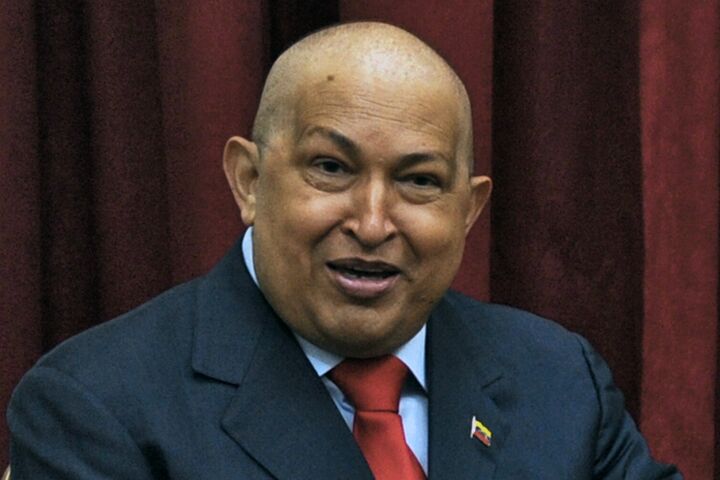
Venezuela Asks for Its Gold Back
Venezuelan President Hugo Chávez has announced he is repatriating his country’s gold reserves from Britain, the United States and Canada. The move may be the largest gold transfer in modern history.
According to the Financial Times, Venezuela holds the world’s 15th-largest gold stockpile, most of which is stored at the Bank of England. Now, Chávez is asking for it all back—more than 200 tons’ worth. He has asked depositories in the U.S. and Canada to release smaller amounts as well.
That means over 17,000 400-ounce bars will need to be moved.
Some experts say it will be a logistic nightmare that may require more than 40 shipments on privately chartered aircraft and even military escorts. And at close to $2,000 an ounce, a ton of insurance too.
But according to Chávez, it is worth it.
Western powers can’t be trusted, he says. Look how fast they turned on Muammar Qadhafi, a man they were more than happy to do business with right up until the day they attacked him. Then they froze and stole the state of Libya’s assets to give to a bunch of al Qaeda sympathizers.
But there is another, possibly more ominous reason Chávez wants Venezuela’s gold in Venezuela. The world’s economic system is breaking down. In the chaos that is to come, gold will be more important than ever.
Chávez has said he wants to convert gold into the country’s international reserves because “gold is increasing in its value.”
But why is gold increasing in value? It isn’t due to a supply disruption. At record-high prices, gold-mining companies are proliferating.
The main reason gold is increasing in value is that the world’s major currencies are in a race to debase. The central banks behind the dollar, pound, euro, yen and yuan are all printing money like crazy to “stimulate” economies, steal export advantages, and pay debts in a vain effort to delay economic Armageddon.
With the U.S. dollar in free fall, gold may be beginning to replace it as the world’s reserve currency.
With all the economic turmoil, gold holders are getting jittery. On a national level, storing your gold reserves in militarily superior countries that are effectively bankrupt is about as rational as having Vinnie, your drug-addicted mafia hit man cousin, hang on to your Krugerrand stash for safe keeping.
Governments have a notorious history of confiscating precious metal reserves during times of crisis—even in America. In 1933, in order to stabilize the monetary system, President Franklin D. Roosevelt issued an executive order confiscating all privately owned gold in the U.S. Later, in 1968, President Johnson issued a proclamation that all Federal Reserve silver certificates were merely fiat legal tender and could not be redeemed in silver. Then in 1971, the U.S. government closed the gold window completely and declared that foreign nations would no longer be allowed to exchange U.S. dollars for the gold that was supposedly backing them.
Although announcements from unstable leaders such as Chávez need to be judged with an amount of skepticism, there does seem to be a growing movement to repatriate national gold reserves from the gold centers in London and New York.
In 2009, Hong Kong announced that it was pulling all its gold from London. China said it wanted to establish its own gold bullion trading hub on the mainland. The announcement coincided with a statement made by a former vice chairman of the Chinese Communist Party Standing Committee to the Telegraph’s Ambrose Evans-Pritchard in which he claimed that China was moving toward a partial gold standard through reserve accumulation.
“There is a growing preference among many different communities in the gold market to have their physical gold at home,” said Edel Tully, precious metals strategist at ubs.
America and Britain may ridicule Chávez’s economically depressed nation, but there is a high probability that other nations are already wondering if they should follow in his footsteps.
As the economic turmoil continues in America and Britain, as the dollar and pound continue to be devalued, expect other nations to follow Chávez’s example—and take their money and run.
